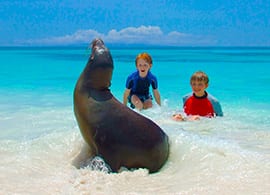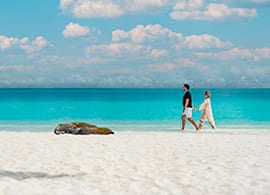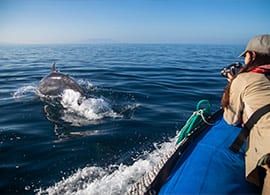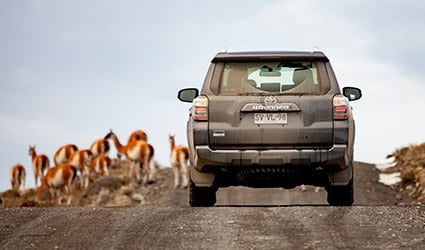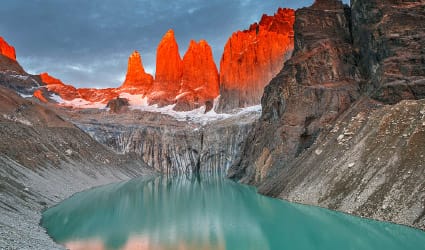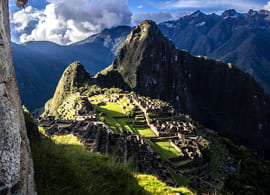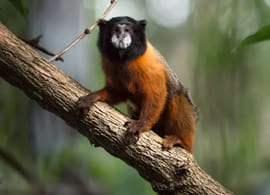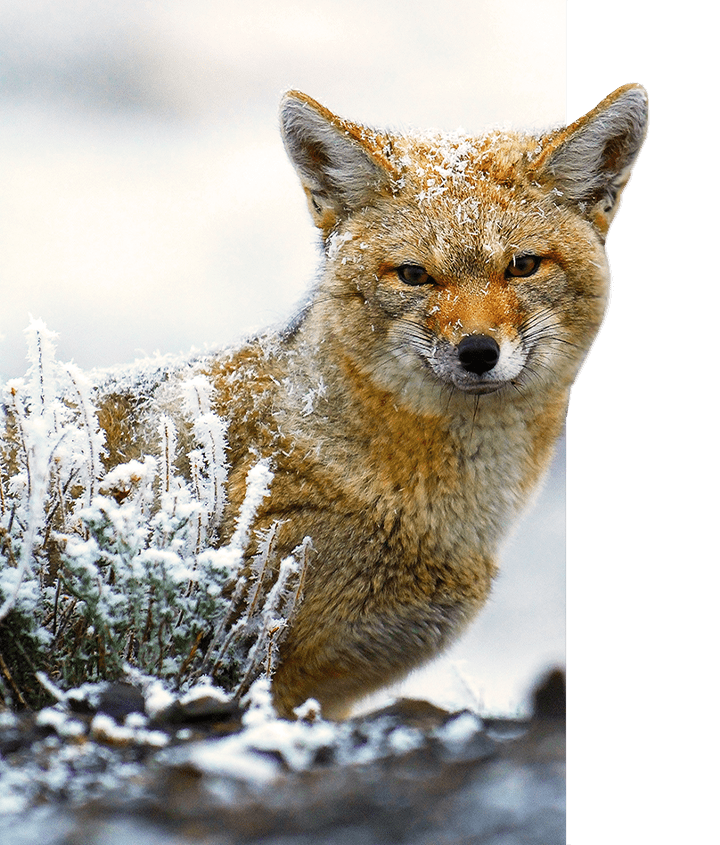
Patagonia is known as a dream destination for outdoor enthusiasts, wine lovers, photographers, bird watchers, rock climbers, and adventure seekers. After the initial idea to plan the trip of a lifetime is sparked, travelers often wonder about whether Patagonia, Chile, and Argentina are safe. The short answer is, absolutely! Patagonia is a safe travel destination for Americans and other foreign travelers.
1. Is it safe to hike in Patagonia?
Patagonia is an ideal hiking destination for people of all ages looking to immerse themselves in nature. Awe-inspiring beauty awaits around every corner of your hike, however, the sublime landscapes of Patagonia can require navigating rugged terrain by foot.
While the overall safety of your Patagonia adventure tour to this region can vary based on the trails you choose, a basic level of fitness, consistent hydration, and proper equipment are recommended. If you’re on a Overland Safari through Patagonia, you’ll be equipped with hiking poles and provided with trek routes that are tailored to your level of fitness, challenge preference, and mobility.
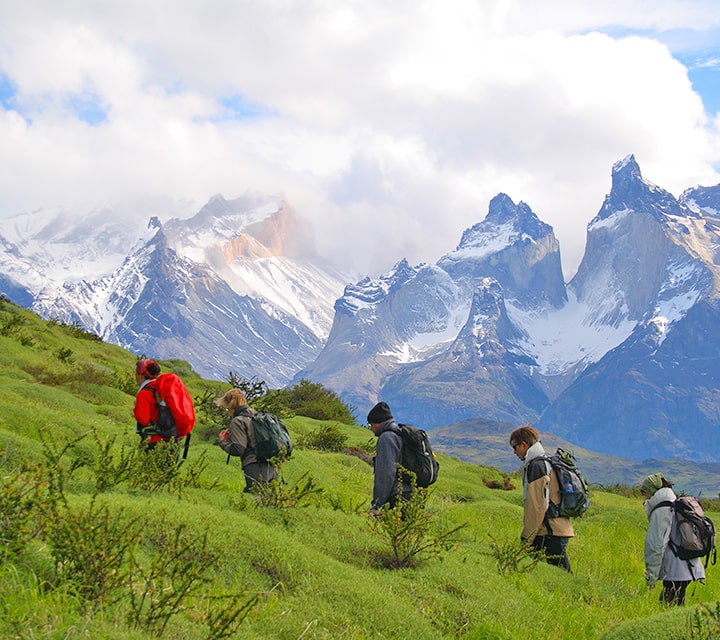
RECOMMENDED FITNESS LEVEL FOR HIKING IN PATAGONIA
If you are an active traveler looking to take advantage of the incredible variety of hikes through Patagonia, you can expect some longer walks and treks in changing Patagonia weather. Having a good sense of balance and being relatively sure-footed is strongly recommended, as is having the ability to walk for a least a couple of miles/kilometers. However, Patagonia is not a destination that is enjoyed only by active or fit individuals. This destination can be enjoyed by anyone, regardless of their physical condition. You just need to choose your daily activities wisely and these must be in accordance to your interests, that day's weather and your general physical condition.
NAVIGATING ALTITUDE IN PATAGONIA
The only region of Chile known to cause shortness of breath for some visitors due to altitude is the Atacama Desert. In Patagonia however, altitude sickness will not be an issue. While most hikes can be done on your own, there are a few that will require a guide to help navigate elevation gain, level of difficulty, and trail systems. Therefore, we recommend trekking and exploring with a local guide who is familiar with the summits, elements, terrain, and weather patterns.
“Our guide in Patagonia was perfect – [she] accommodated our needs, ensured we got the best out of the experience, and had tremendous familiarity and knowledge about the area.” Quasar Guest, C. Kuhn, TrustPilot
VIRTUALLY NON-EXISTENT CRIME IN PATAGONIA
When you travel away from the urban areas and into Patagonia, you will find that crime rates are virtually non-existent. Locals here are known for going out of their way to show kindness to tourists and lending a helping hand. You will not have to worry about security in Patagonia’s National Parks, but you may want to be mindful of your valuables when visiting Puerto Natales in Chile and El Calafate in Argentina.
2. Is the wildlife in Patagonia dangerous?
National park visitors, hikers, kayakers, and wildlife photographers often wonder whether potential wildlife encounters in Patagonia pose any danger. You can rest assured that there are very few threatening animals in Patagonia, and those that are dangerous are elusive and rarely even spotted by humans.
WILDLIFE PRECAUTIONS IN PATAGONIA
If you’re not one who hopes to encounter spiders and reptiles, fear not! While there are a few venomous snakes known in Patagonia, like the Yararanata (Bothrops ammodytoides), which is a highly venomous species that ranges further south than any other terrestrial snake in the world, clear south to Latitude -47 degrees (South) in Santa Cruz province, Argentina, it is highly unlikely that you’ll encounter any poisonous crawlers.
What about the mighty puma? While all wild animals can be dangerous if provoked, in Patagonia and Chile, pumas are protected animals and therefore have no fear of humans. The best chance of spotting this amazing animal is on a Puma Wildlife Tracking Safari during Patagonia’s winter months (May through August). On this Safari, you will have a private guide and your very own Puma Tracker scouting out these beautiful felines with you.
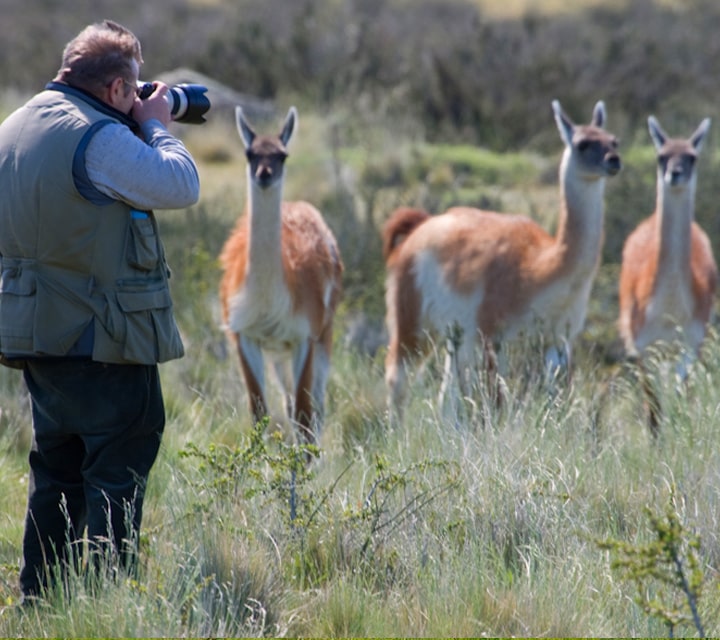
3. Is it safe to consume the food and water in Patagonia?
The food, beverages, water, and ice are clean and safe at all hotels along Quasar’s expedition routes in Patagonia, Chile, and Argentina. If you have any dietary restrictions, most hotels will happily accommodate your needs. For water safety, each hotel provides a purified water station to fill your canteen bottle each day before setting out on your hike or excursions. If you have a sensitive travel stomach, you may want to check with your doctor about how to avoid upset stomach. Your doctor may use the CDC guidelines below:
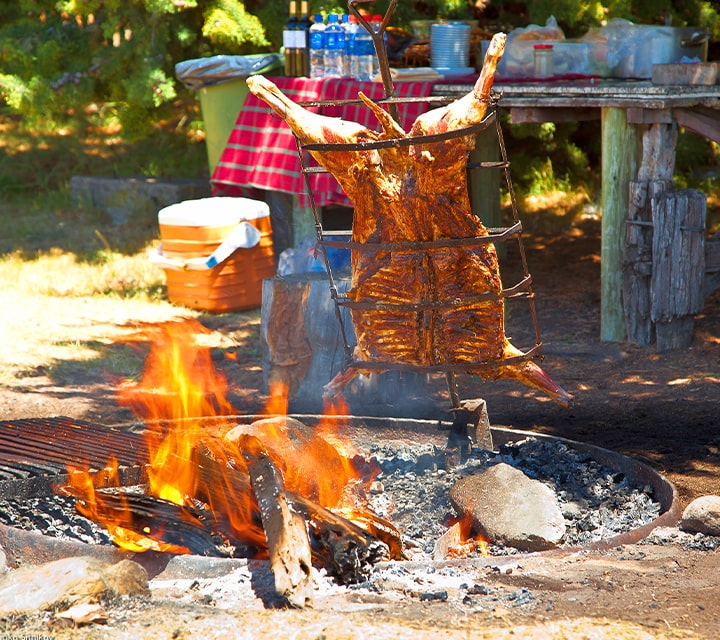
Tips for staying healthy in Patagonia (Source: CDC)
- Drink only bottled or boiled water, or carbonated (bubbly) drinks in cans or bottles. Avoid tap water, fountain drinks, and ice cubes (outside of your hotels).
- Eat only thoroughly cooked food or fruits and vegetables you have peeled yourself. Remember: boil it, cook it, peel it, or forget it.
- Don’t eat food purchased from street vendors.
- Avoid eating seafood (except in restaurants or at the hotels).
First aid and emergencies in Patagonia
To make certain of your personal safety and comfort on our Patagonia tour packages, bring a personal first aid kit to Patagonia, including any prescription medications, vitamins, or over the counter drugs you may require. If you’re on a Quasar Overland Safari, your vehicles will be fully equipped with a basic first aid kit, satellite phone, and GPS locators to ensure first responders can reach you quickly in the case of an emergency.
As you will be in the wild at “the end of the world,” we highly recommended travel insurance with medical evacuation included for safe measure.
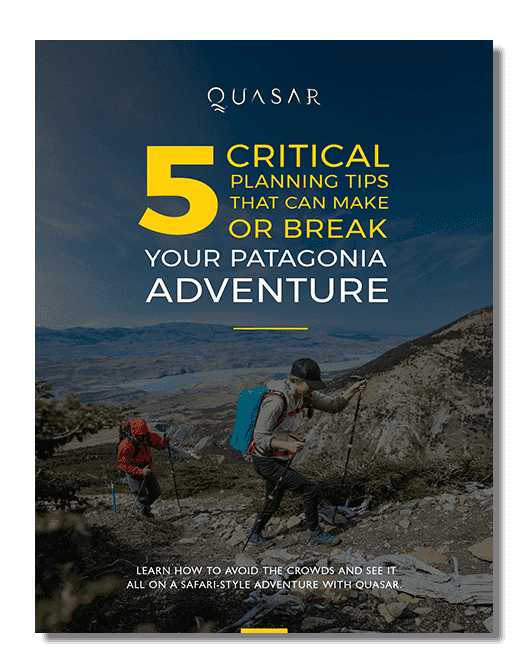
4. Is it safe to travel solo in Patagonia?
Patagonia is the perfect destination for solo travel, with virtually no crime, very few dangerous animals, and locals who go out of their way to be kind and welcoming to international travelers. According to the Matador Network, Argentina is the best destination for female solo travelers! In Patagonia, solo travelers from near and far can expect wonderful hospitality, a rich cultural experience, and of course, unparalleled scenery.
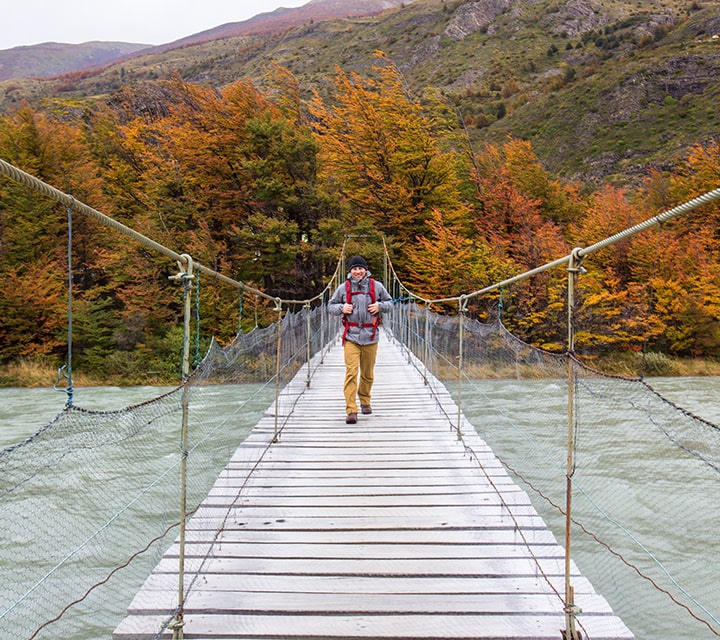
5. Is it safe to travel with kids in Patagonia?
Patagonia is particularly safe for family travel – so safe that Responsible Travel reviewed Patagonia as a wonderful destination for adventurous families, with opportunities to explore together at sea, on sand, in the mountains, and everywhere in between.
Depending on the kind of trip you choose to take, longer hikes, rock scrambling, and occasional harsh weather may be unsuitable for very young children. However, along with the opportunity for once-in-a-lifetime outdoor experiences comes the chance to bond as a family and make lasting memories.
If your kids have particular medical needs, be sure to bring a personal medical kit with an extra supply of medicine in case you find yourself in a more remote area without clinic access. If you’ve opted for a family tour of Patagonia, Quasar’s vehicles are fully equipped for emergencies. Additionally, most hotels during your stay can offer the services of a doctor if needed.
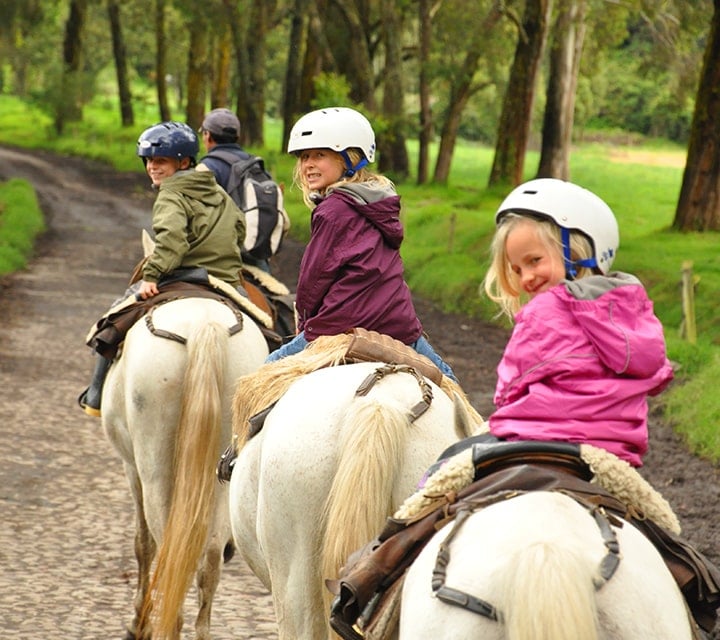
6. Are the South American cities I’ll be traveling through on my way to Patagonia safe?
On your way to Patagonia, you may decide to stop and stay awhile in Santiago or Buenos Aires, two of South America’s most friendly and beautiful cities. Although police patrol the tourist areas of these cities regularly, it is recommended that you take the same precautions you would take while traveling through any other urban area you are unfamiliar with.
Protecting valuables in Santiago and Buenos Aires
While these cities are known for their tourist-friendly culture, it is important to remain alert to your surroundings. Maintain a good grip on your camera and pack if you bring them along, especially if you are using public transportation. We recommend leaving your jewelry, passport, and most of your cash (all but the credit card you plan to use) in your hotel lockbox.
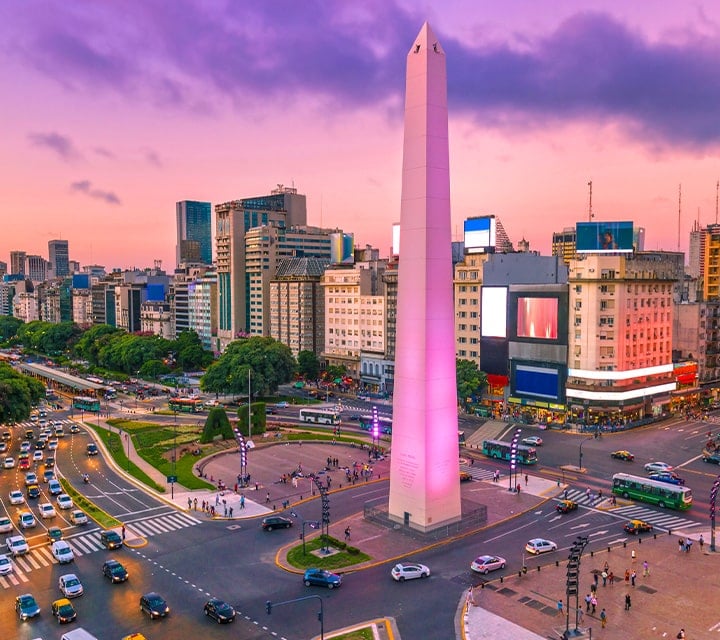
-
What about the Chilean recluse? A contestant on Alone (History channel) was bitten by one and the venom can be deadly
-
Thanks for all of the useful info in the article.
-
Hi Tasha if I have my own sailboat can I sell around the coastline without being vaccinated
-
Hi Ron!
Great question!
The Patagonian Lancehead snake, (scientific name Bothrops ammodytoides) is a venomous pit viper species endemic to Argentina. Known locally as Yarará, there are records of this snake mainly in the northern part of Argentinean Patagonia, specifically in the provinces of Neuquen and Rio Negro. These provinces are far from the areas visited by our Patagonia Overland Safaris, and thus clients visiting Southern Patagonia with Quasar do not need to worry about the Patagonian Lancehead snake.
Thank you, Tasha


